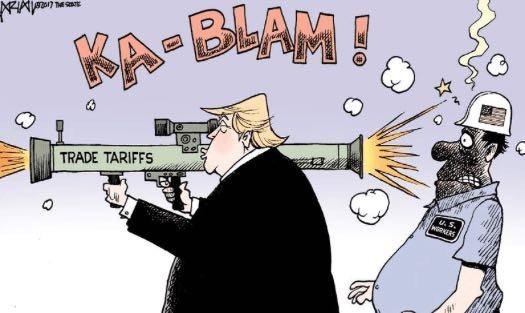Trade Wars have no winners
In 2017, BMW exported 81,186 vehicles from its plant in Greer, SC to China with an export value of $2.37 billion. But on July 6, China increased its import tax on American-made automobiles from 25 percent to 40 percent. This came in retaliation to $34 billion in tariffs the Trump administration levied on Chinese imports the same day.
Company spokesman Kenn Sparks told Reuters that if tariffs undermine the competitiveness of BMW production and sales in the U.S., “the result could be strongly reduced export volumes with negative effects on investments and jobs in the U.S.” In the wake of China’s increased tariffs, BMW was pressed to raise the suggested retail prices of South Carolina-made X5s and X6s by 4 percent to 7 percent, respectively, on July 30.
“The trade dispute between the U.S. and China is straining the entire global economy,” BMW Group Chairman Harald Krüger said Wednesday morning.
COMMENT: Really too bad there’s no academic discipline that has studied international trade for hundreds of years going back to the 18th century, with extensive knowledge of trade theories and mountains of research and empirical evidence on protectionism that could have predicted these adverse outcomes from a trade war.

Congratulations @kuching! You received a personal award!
Click here to view your Board of Honor
Do not miss the last post from @steemitboard: